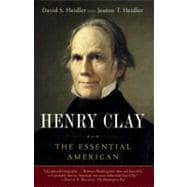
Note: Supplemental materials are not guaranteed with Rental or Used book purchases.
Purchase Benefits
| Prologue | p. xi |
| The Slashes | p. 3 |
| öMy Hopes Were More then Realizedö | p. 26 |
| öPuppyismö | p. 54 |
| The Hawk and the Gambler | p. 84 |
| Uncompromising Compromiser | p. 120 |
| öI Injured Both Him and Myselfö | p. 154 |
| A Thousand Cuts | p. 186 |
| Losing the Bank, Saving the Union | p. 219 |
| Whig | p. 259 |
| öI Had Rather Be Right than Be Presidentö | p. 284 |
| Three Campaigns | p. 317 |
| Four Letters | p. 354 |
| öDeath Ruthless Deathö | p. 394 |
| The Last Gamble | p. 418 |
| öWhat Prodigies Ariseö | p. 445 |
| öThe Best & Almost Only True Friendö | p. 476 |
| Acknowledgments | p. 493 |
| Notes | p. 497 |
| Bibliography | p. 551 |
| Index | p. 569 |
| Table of Contents provided by Ingram. All Rights Reserved. |
The New copy of this book will include any supplemental materials advertised. Please check the title of the book to determine if it should include any access cards, study guides, lab manuals, CDs, etc.
The Used, Rental and eBook copies of this book are not guaranteed to include any supplemental materials. Typically, only the book itself is included. This is true even if the title states it includes any access cards, study guides, lab manuals, CDs, etc.